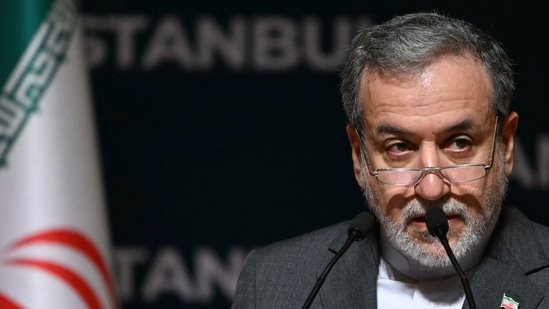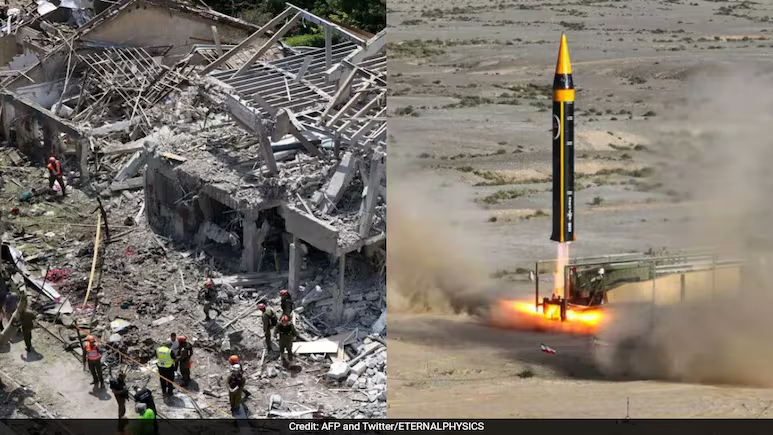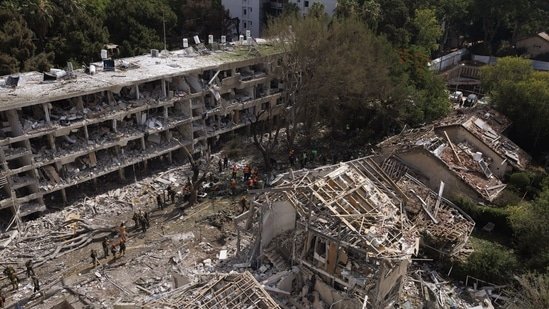As tension ripples across the Middle East, diplomacy is unraveling fast. Iran’s top diplomat, Abbas Araghchi, has come forward with bold accusations against Israel and the U.S., claiming deliberate sabotage of nuclear talks. With key strikes on nuclear sites and inflammatory rhetoric on both sides, the fragile hope for peace now hangs in the balance. This article walks through the full timeline, facts, and regional implications.
Diplomacy in the Crossfire: Iran, Israel, and the United States on Nuclear Tensions
In a world teetering at the edge of a wider regional war, the fragile thread of diplomacy has been stretched thin once more. At the epicenter of the current storm is Iran’s top diplomat, Abbas Araghchi, who accused over the weekend both Israel and America of orchestrating “intentional” strikes on Iran’s nuclear facilities, a clear attempt to damage ongoing talks.
Araghchi’s comments, which were posted on X (formerly Twitter) and thus carried an air of semi-officiality, seemed to mark a new level of irritation in Iran’s diplomacy after what has been perceived here as a united effort at sabotage. His message, stark and unequivocal, is a measure of how quickly the pendulum has swung from cautious optimism to open confrontation.
Accusations and Timing
The essence of Araghchi’s words is that Israel and the United States have scheduled their military moves to cause as much as possible of disturbance to such ongoing diplomacy.
“Last week we were getting on fine with the US when Israel destroyed that diplomacy. This week, when the US sought to blow up that diplomacy, we had good discussions with the E3 and the EU as our respected counterparts.”
According to Araghchi, the June 13 Israeli strike “put an end to any chance of a breakthrough in Iran-U.S. talks” and over the weekend launched its most aggressive response yet to a U.S. attack on Iran’s nuclear facilities, shattering its diplomatic engagement with European powers.
Pushing back again at European calls for Iran to rejoin the negotiating table, Araghchi asked in a sarcastic rhetorical question:
“How does Iran return to something it was never added to it?”
He further challenged British officials and the European Union’s high representative for foreign affairs by implying that Iran had continuously remained engaged only to have diplomacy sabotaged from the outside.
Also read, Iran Uses Its Biggest Missile To Strike Israel After US Bombing
The U.S. Airstrikes: A Dangerous Escalation
The United States opened a massive assault on Sunday aimed at three Iranian nuclear facilities. President Donald Trump told the country from the White House that these strikes had “destroyed 100 percent” of Iran’s primary nuclear sites. The shift represented a sharp escalation in Washington’s long-running intervention in Israel’s efforts to counter Iran in its drive for nuclear weapons.
- The sites targeted:
- Fordo – dug deep into a mountain, long scrutinized for uranium enrichment
- Natanz – Iran’s core uranium enrichment plant
- Isfahan – known for converting uranium into reactor fuel
- The Iranian Atomic Energy Organization confirmed the attacks on these three locations.
- Both Iranian officials and the IAEA reported no signs of radioactive pollution.
Even so, the political and strategic effect of the strikes has been enormous. Iran has accused the United States of initiating “a dangerous war,” and there are fears among regional observers that this head-on military confrontation could destroy the last elements of an already fragile balance in the Middle East.
Iran’s Response and Regional Fallout
Araghchi, representing Iran’s diplomatic corps, cautioned that Tehran’s retaliation would be proportionate to the level of U.S. aggression.
“We will respond in a manner that is appropriate to the rights and obligations of the United States, and relevant national security interests.”
He did not detail plans for retaliation, but the implication was unmistakable: Iran does not view the strikes as just acts of war, but provocations designed to create widespread regional instability.
The timing of the American strikes was critical. The attacks came as Iranian negotiators were in talks with their European counterparts. From Tehran’s perspective, this implies a U.S. intention to by-pass multilateral diplomacy and impose itself by upping the force ante.
- Iran claims these moves render negotiations ineffective.
- Officials warn they may need to adopt a new strategic posture.
- The diplomatic table, once a site of compromise, now seems like a minefield.
A Diplomatic Dilemma
The wider question, one that diplomats in Brussels, Washington and Tehran will be pondering in private, is whether any substantive dialogue at all is possible under these circumstances. Araghchi’s frustration is not just with timing, but with principle. How can Iran negotiate in good faith when its interlocutors are bombing its infrastructure?
“To Britain and the EU High Rep, it is Iran which should ‘return’ to the table. But how can Iran go back to something it never departed from, let alone blew up?”
It is a line that encapsulates a deeper story now coming out of Tehran – that the burden is not on Iran alone to act, but on those who, in the view of Iranian officials, are methodically shutting down diplomacy through military escalation.
Israel’s Role and Strategic Intent
While the U.S. has taken center stage in the past week, Iran identifies Israel’s June 13 strike as a key moment that derailed Iran-U.S. negotiations. Israeli officials have not addressed the strike, though Israel has long opposed Iran’s nuclear program, calling it an existential threat.
Tehran believes Israel’s moves are not isolated but are closely coordinated with U.S. strategy. This further erodes any remaining trust in Western-led diplomatic processes.
Also read, US attack on Iran’s nuclear facilities: The radiation leak threat, explained
The Road Ahead: Wary Hopes and High Stakes
To date, Iran has not yet declared a withdrawal from all discussion or covenants. But the tone and content of its most recent statements indicate that trust has been badly eroded. The bombings and attacks on the Fordo, Isfahan, and Natanz sites – while they left no radioactive fallout – created diplomatic fallout that may be just as dangerous.
- The U.S. is now directly engaged on the ground and in the air.
- Israel appears to be running a separate campaign of strikes and pressure.
- The likelihood of a negotiated end to Iran’s nuclear ambitions now seems remote.
- Observers argue that the case for diplomacy has never been stronger.
- A single miscalculation could pull regional and even global powers into the crisis.
The challenge now for the international community – particularly the European Union and United Nations – is to reestablish dialogue as a matter of urgency. This means not only advocating for talks but also creating environments where those talks can produce results. It also means acknowledging the hard truth: diplomacy cannot endure if it is repeatedly undermined by warplanes and weapons.
Final Thoughts
Iran’s allegations against Israel and the United States tell a tale of a diplomatic process repeatedly pierced by force. Whether these were deliberate disruptions or unfortunate coincidences, the timing of attacks on Iranian nuclear facilities has convinced many that diplomacy is no longer a trusted route forward.
As Araghchi posed, “What inference would you draw?” For many inside Iran and outside, the answer is becoming clearer by the day: the rules of engagement have shifted, and the place where grievances are now being handled is the battlefield – an outcome no one should want.
There has been no proven radiation leakage. But there is a cloud of mistrust hanging over every player in this drama. What comes next from Tehran, Washington, and Jerusalem will decide whether talks can still take place in an age ruled by drones, bombs, and broken promises.
Conclusion
The diplomatic landscape surrounding Iran’s nuclear ambitions has never looked more volatile. With Araghchi’s public accusations and U.S. and Israeli strikes disrupting talks, trust has become a casualty of geopolitics. While the world avoided nuclear contamination this time, it could not escape the consequences of sabotaged negotiations and intensified tensions.
Whether diplomacy can still survive depends on actions taken now – by world powers, by mediators, and by those willing to pick up the pieces and talk. But talk alone is not enough. Protection for dialogue must be prioritized if future generations are to live in peace rather than perpetual war.
Frequently Asked Questions (FAQs)
1. What did Abbas Araghchi accuse Israel and the U.S. of doing?
He accused them of deliberately timing military strikes on Iran’s nuclear sites to sabotage diplomatic negotiations with both the U.S. and EU.
2. Which Iranian nuclear sites were attacked?
The U.S. targeted Fordo, Natanz, and Isfahan. All are central to Iran’s uranium enrichment and nuclear infrastructure.
3. Did the strikes cause radioactive leaks?
No. Both Iran and the IAEA reported that there were no signs of radioactive contamination at the affected facilities.
4. How has Iran responded to the strikes?
Iran has condemned the attacks, warned of a proportional response, and emphasized its continued commitment to national security over diplomacy under threat.
5. Is there any hope for renewed negotiations?
Yes, but with great difficulty. Trust has been eroded, and only sustained third-party mediation and verifiable de-escalation may reopen paths to diplomacy.
Reference
Stay updated with all the latest news and insights – News Of US






